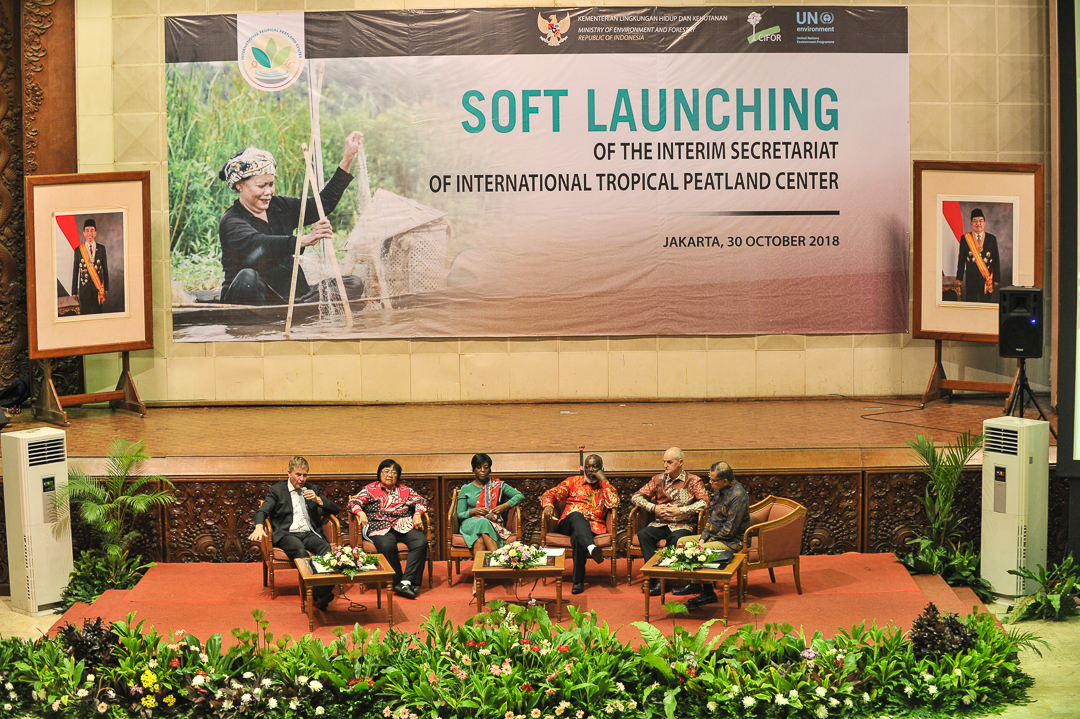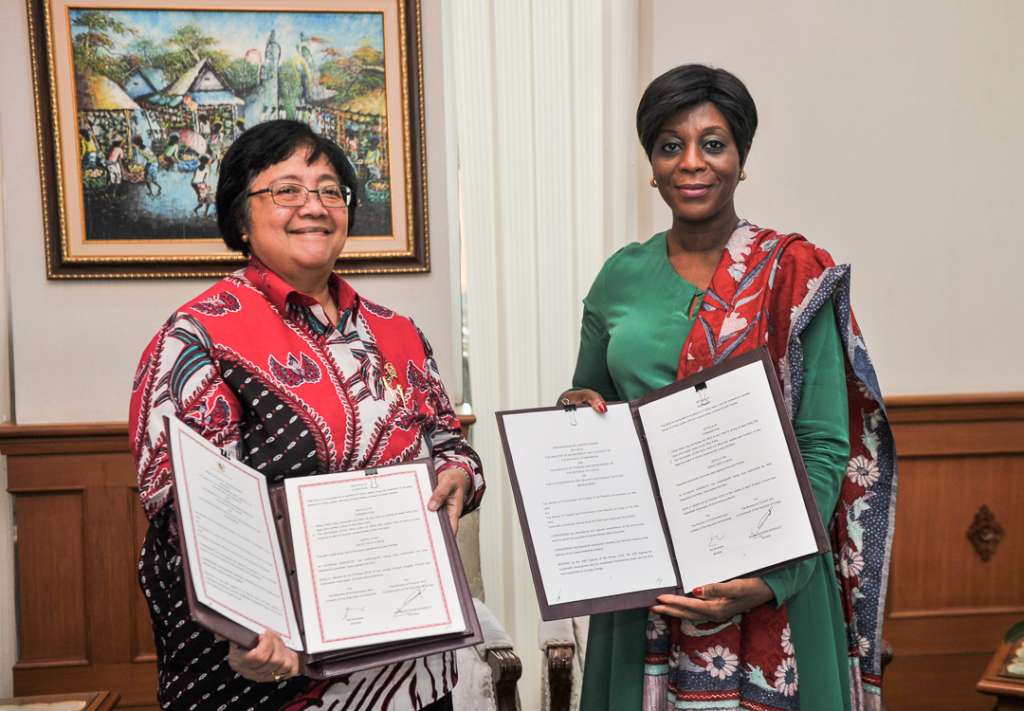
Jakarta, 1 November 2018 – The Government of Indonesia with the Democratic Republic of the Congo, Republic of the Congo, the Government of Peru announced a collaboration to form the International Tropical Peatland Center (ITPC) in Jakarta, 30 October 2018. The launch was the next step after the historic 2018 Brazzaville declaration to promote better management and conservation of the world’s largest tropical peatlands, the Cuvette Centrale region in the Congo Basin, also other peatland initiatives.
Representatives of Governments of the Democratic Republic of Congo, Republic of Congo, and Republic of Indonesia met in Jakarta on Tuesday to cooperate on establishing the ITPC. The event was preceded by a three-day visit to showcase Indonesia’s sustainable peatland management and readiness in fighting forest and land fires. Representatives from Peru did not attend the launch but are committed to the establishment of the center. An interim secretariat will be hosted by Indonesia, coordinated by Ministry of Environment and Forestry, and assisted by the Center for International Forestry Research (CIFOR).
The soft launch of the interim secretariat was attended by the Republic of Congo Minister of Tourism and Environment, Mrs. Arlette Soudan-Nonault and the Democratic Republic of Congo was represented by the Forest General Director and Personal Representative of the Minister of Environment and Sustainable Development, Mr. Jose Ilanga Lofonga. The event was also attended by around 400 people, representatives of international organizations, universities and research centers, the private sector, civil society, funding partners and practitioners.
Indonesian Minister of Environment and Forestry Siti Nurbaya Bakar said that the country “has quite a long experience in managing its over 15 million hectares of peatlands. This went back to early in the last century when local tribes in Kalimantan has managed peatlands in a sustainable manner for subsistence purposes.”
From the 1970s, Indonesia have started to commercially utilize peatlands for timber, agriculture and plantation, when the ecosystem started to degrade significantly. “The present era can be labeled as the corrective era. Indonesia is confident the world acknowledged Indonesia’s peatland management as internationally recognized within a short period of time of three years since 2015,” Siti Nurbaya said.
The ITPC will serve as a hub to connect different stakeholders, coordinating and supporting collaborative international relationships in strategies and practices for tropical peatland management in the context of a South to South cooperation. The center will also carry out and disseminate scientific research and become a center of excellence for tropical peatland research to support policy development and provide capacity building and technical services.
In their draft long-term plan until 2025, the center aims “to govern peatland knowledge to ensure sustainable ecosystems and human wellbeing for national and international benefits.” In the first year, the center plans to consult all stakeholders to map challenges and opportunities, contributions and commitments and the establishment of the secretariat in Bogor, Indonesia. In 2019, the center will also begin research on broad aspects of peatland management and establishing demonstration plots in Indonesia, the Democratic Republic of Congo, the Republic of Congo and Peru.
Tropical peatlands hold about 30 to 40 per cent of the world’s carbon storage in an area covering about three per cent of the land surface, thus preserving it is crucial in the efforts to fight adverse impacts of climate change.
For further information please contact:
Mrs. Yayuk Siswiyanti
Forest Research and Development Center
FOERDIA, Ministry of Environment and Forestry, Republic of Indonesia
Phone: +62-251-8633234, Facs: +62-251-8638111
Email: yayuksiswiyantiharis@gmail.com
Mrs. Budhy Kristanty
Communication Officer for Indonesia
Center for International Forestry Research (CIFOR)
Tel +62 (0) 251 8622622 | Cell +62 (0) 811 1904283
Email: b.kristanty@cgiar.org










